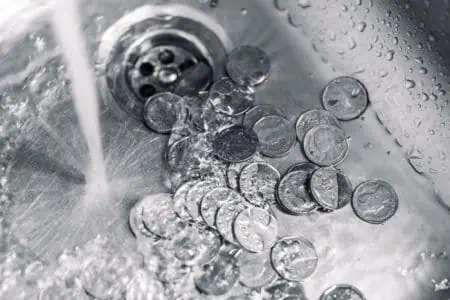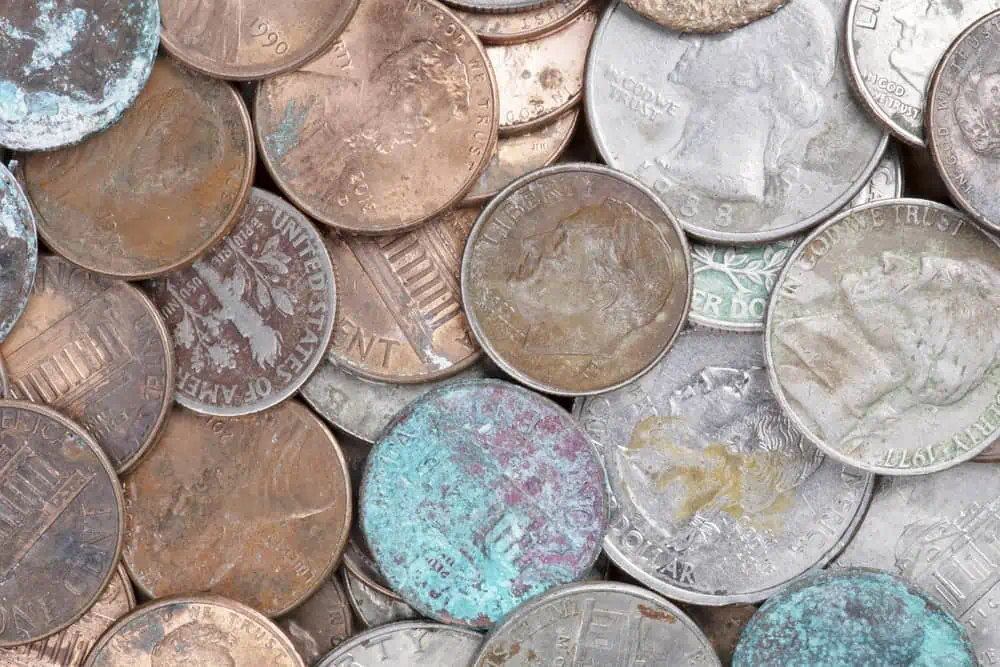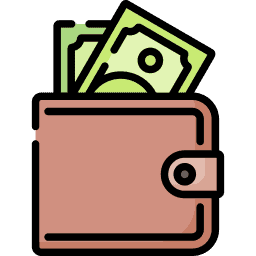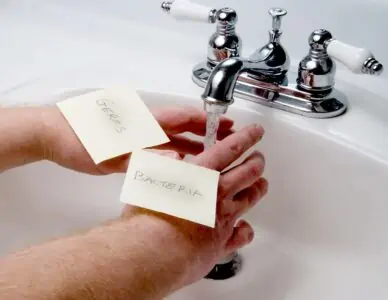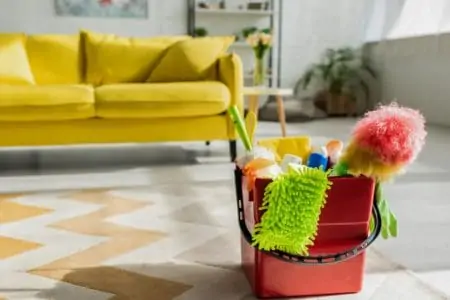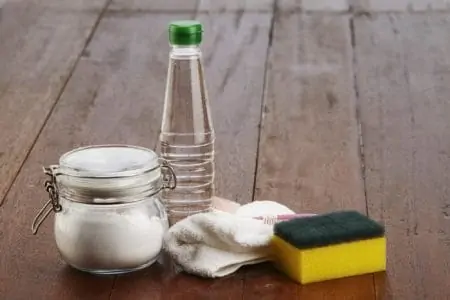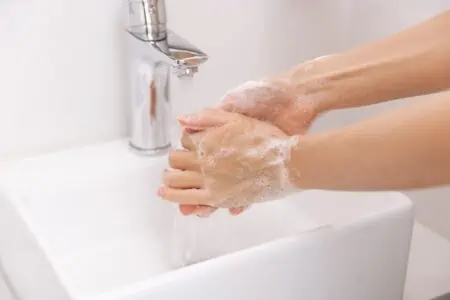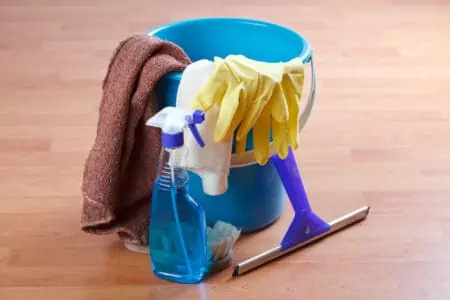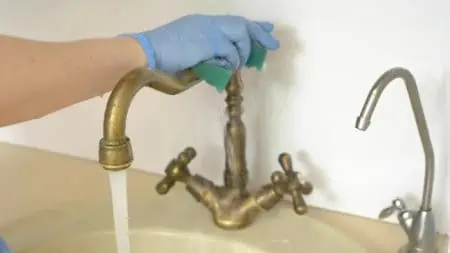Do you have a jar full of sticky, dirty, or tarnished coins sitting on your dresser? Would you like to clean your quarters without devaluing them? This is why we’re covering how to clean coins at home without losing value.
You’ll be able to show off your coin collection to friends and family for years to come.
Key Takeaways
- Be cautious when cleaning collectible or antique coins, as improper cleaning can reduce their value. Consider hiring a professional for valuable coins.
- For everyday coins, use mild soap and water, vinegar, baking soda, Coca-Cola, toothpaste, hydrogen peroxide, or olive oil to clean them.
- Clean oxidized coins using an isopropyl alcohol and salt bath for the best results.
- To prevent damage, store coins in acid-free holders, away from extreme temperatures and humidity.
Should You Clean Your Coins?
You will need to be careful before you begin cleaning any potentially collectible or antique coin as the cleaning process may cause the coin to lose its value. This is because the cleaning process may leave scratches and marks that a skilled appraiser will see, reducing the coin’s value.
It’s recommended that you hire a professional to clean your coins in a way that won’t reduce your coins’ value.
However, if you’re cleaning everyday coins that you’re not planning to sell or coins with little or no collectible value, you can clean the coins any way you choose.
How to Clean Dirty Coins At Home
Common household supplies can be used to clean coins. Keep in mind that cleaning coins may reduce the value of any collectible or valuable coins you own.
It’s also a good idea to make sure that you rinse the coins with distilled water after you’ve cleaned them. This will make sure that any minerals in the tap water don’t remain on your coins potentially discoloring them.
With Soap and Water
Mix a few drops of mild dish soap and water in a small container. Drop your coin into the container and let it sit for a few minutes before using an old, soft toothbrush to gently scrub the dirt off of your coin. Rinse the coin and allow it to dry on a soft cloth.
With Vinegar
The acidity of vinegar makes it an excellent cleaning agent for cleaning dirty coins at home. Place the coins you’d like to clean in a small bowl. Pour white vinegar over the coins making sure that the coins are completely covered by the vinegar.
Allow the coins to soak for at least 30 minutes. However, make sure they don’t soak longer than overnight as the vinegar will eventually react with the metal of the coins.
Use a toothbrush to scrub any remaining residue from your coins. Rinse the coins and dry them with a soft cloth.
With Baking Soda
Pour baking soda into a small bowl. You’ll need about 1 teaspoon for every 4 coins that you plan to clean. Stop your drain or place a washcloth over the drain to prevent the coins from falling into it. Turn the faucet on so you have a gentle stream of water flowing.
Get an old toothbrush wet under the running water and dip the bristles into the baking soda. Gently scrub the coin with the baking soda to remove any tarnish or dirt on the coin. When the coin is clean, rinse it under the running water to make sure all the residue is gone.
Dry it with a soft cloth.
With Coke
Drop one coin into a glass or small container and pour enough Coca-Cola over the coin to cover it. Allow it to soak for up to 15 minutes, but be sure to check it every 5 minutes. When it’s clean, rinse it under running water to make sure all the residue has been removed.
Allow the coin to air dry.
Caution: Don’t soak your coins in bulk time as soaking multiple coins may cause discoloration. Make sure to soak only 1 coin at a time.
With Toothpaste
Another hack is knowing how to clean pennies with toothpaste. Toothpaste will also clean silver coins.
You can use any type of toothpaste, but tartar control toothpaste works the best. Work the toothpaste into the coins with your fingers and remove the dirt and grime from the coin.
When you’ve finished rubbing the grime from the coin, use a paper towel to buff the coin. Then rinse the coin under running water and dry with a soft cloth.
With Hydrogen Peroxide
Hydrogen peroxide can remove years of dirt from your coins. Place your coins into a small container and pour enough hydrogen peroxide to immerse your coins. Allow your coins to soak for 24 hours.
Remove the coins and rinse them under running water. Let the coins air dry or dry them with a soft cloth.
With Olive Oil
You can also clean coins that are covered with dirt you haven’t been able to remove with soap and water, with olive oil. The olive oil will separate the stubborn dirt from the surface of the coin, but it will take a long time.
Drop your coins into a bowl and cover the coins with olive oil. You will need to allow your coins to sit for 1-6 months for the dirt to lift.
Check the coins periodically. If the oil appears to be discolored, you will need to change the oil.
When the coils appear to be clean, remove them from the bowl. Use distilled water and mild soap to clean your coins. An old toothbrush can be used to gently scrub your coins clean.
Allow the coins to air dry on a soft cloth.
If you’d like to, you can use olive oil to polish older coins that appear to be tarnished. Gently apply the olive oil to your coins with a soft cloth. This will help to prevent the coins from tarnishing over time.
How to Clean Oxidized Coins
The best way to clean oxidized coins is to place them in isopropyl alcohol and salt bath for a period of time. The isopropyl alcohol will react with the oxidation and remove the tarnish.
- Time: 3 hours – 1 week
- Difficulty: Beginner
What You’ll Need
- Table salt
- Isopropyl alcohol or rubbing alcohol
- Small container
- Measuring spoons
- Measuring cup
- Distilled water
1. Make Bath
Make a bath for your coins by pouring 1 cup of isopropyl alcohol into the small container. Add 2 tablespoons of table salt to the container. Mix the two ingredients together until the salt has dissolved.
2. Soak Coins
Place the coins into the bath and leave them there until the coins are cleaned. This may take anywhere from 2 hours to 1 week. As isopropyl alcohol is flammable and has a strong odor, leave the soaking coins in a well-ventilated area.
3. Rinse and Dry
Rinse the coins by plugging the drain of your sink so the coins don’t fall down the drain. Then hold the coins in your hand and pour the distilled water over the coins until they’re rinsed. Turn the coins over and rinse the other side of the coin as well.
Make sure you’ve removed all the chemicals from your coins. Also, don’t rinse the coins under tap water as tap water contains minerals, fluoride, and other chemicals that may react adversely with your coins.
Allow your coins to air dry on a soft cloth.
How to Clean Old Coins Without Damaging Them
The best way to clean coins safely is to use mild soap and distilled water. Remember that if you have a collectible or valuable coin, you may wish to have a professional clean the coin to prevent any accidental damage to the coin during the cleaning process.
- Time: 30-40 minutes
- Difficulty: Beginner
What You’ll Need
- 2 plastic containers
- Distilled water
- Mild hand soap
- Measuring spoons
- Well-worn soft-bristled brush such as a toothbrush
- Soft cloth
1. Mix Soapy Water
Fill both of the plastic containers with distilled water. Add 1 tablespoon of the hand soap to one container and mix until the soap is completely dissolved into the water. The second container will be used to rinse your coins.
2. Soak Coins
Drop the coins into the container with soapy water until the soap has broken down the grime on the coins. This should take about 10-15 minutes.
3. Scrub the Coins
Place the coins on your soft cloth and use the brush to gently scrub the dirt off of your coins. If needed, you can place the coins back into the soapy water to soak and repeat the process until the coins are clean.
Warning: The brush may put tiny scratches on antique or collectible coins reducing their value. If needed, use your fingers to gently remove any loose dirt instead of scrubbing the coins.
4. Rinse and Dry
Place the clean coin into the rinse container. Allow it to sit for 5-10 minutes before removing it from the container and placing it on the soft cloth to air dry.
Tips For Storing Coins Correctly
- Store the coins in acid-free coin holders.
- Don’t store them in a place where they may fall to the floor.
- Keep them in a room with low humidity.
- Don’t expose the coins to extreme temperatures.
FAQs
In Coinclusion
If you have a pile of old coins you’d like to clean, the best way is to use mild hand soap and distilled water. Allow the coins to soak in the soapy water for 10 minutes before pulling them out and gently scrubbing them with a soft brush. Rinse the coin and allow it to air dry.
Remember that cleaning old coins may damage them and reduce their value, so if you have an antique or collectible coin you may wish to have a professional clean the coin.
